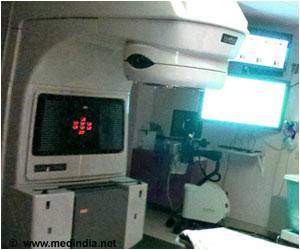A recent study conducted by scientists explains how resveratrol found in red wine remains effective at fighting cancer.

Enzymes within cells are then able to break it down into resveratrol again, meaning that levels of resveratrol in the cells are higher than was previously thought.
In fact, the results appeared to show resveratrol may be more effective once it has been generated from resveratrol sulfate than it is if it has never been metabolised because the concentrations achieved are higher.
The team, led by University of Leicester translational cancer research expert Professor Karen Brown, administered resveratrol sulfate to mice models and were subsequently able to detect free resveratrol in plasma and a variety of tissues in the mice.
This is the first direct sign that resveratrol can be formed from resveratrol sulfate in live animals, and the researchers think it may help to show how resveratrol is able to have beneficial effects in animals.
The study also showed that resveratrol generated from resveratrol sulfate is able to slow the growth of cancer cells by causing them to digest their own internal constituents and stopping them from dividing.
The study is published in the journal Science.
 MEDINDIA
MEDINDIA




 Email
Email










